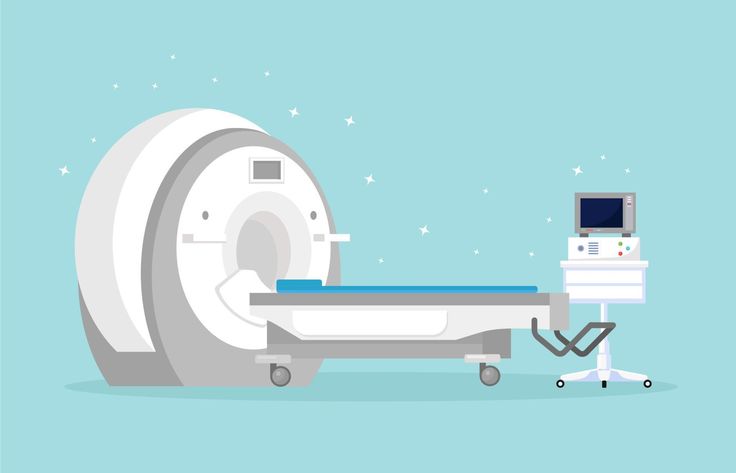When your doctor recommends an MRI scan, finding a reliable and convenient facility is essential. MRI (Magnetic Resonance Imaging) scans are crucial for diagnosing a variety of health conditions, providing detailed images of the body’s internal structures. This guide will help you navigate the process of finding an MRI scan service near you, what to expect during the scan, and how to prepare for the procedure.
What is an MRI Scan?
Understanding MRI Technology
Magnetic Resonance Imaging (MRI) is a diagnostic imaging technique that uses powerful magnets, radio waves, and a computer to create detailed images of organs and tissues inside the body. Unlike X-rays or CT scans, MRI does not use ionizing radiation, making it a safer option for imaging soft tissues like the brain, spinal cord, muscles, and joints.
Why MRI Scans are Performed
MRI scans are used to:
- Diagnose Brain and Spinal Cord Disorders: Such as tumors, strokes, and multiple sclerosis.
- Assess Joint and Soft Tissue Injuries: Including tears, ligament damage, and herniated discs.
- Evaluate Internal Organs: For conditions affecting organs like the heart or liver.
How to Find MRI Scan Services Near You
Searching for Local MRI Facilities
- Online Search: Use search engines with keywords like “MRI scan near me” or “local MRI centers” to find facilities in your area. Websites like Google Maps or Yelp can provide reviews and ratings to help you make an informed decision.
- Consult Your Healthcare Provider: Your doctor can recommend trusted MRI facilities based on your medical needs and preferences.
- Check Insurance Coverage: Contact your health insurance provider to find MRI centers within your network to avoid unexpected costs.
- Hospital and Clinic Websites: Many hospitals and specialized clinics have dedicated imaging departments that offer MRI services. Visit their websites to find more information.
Choosing the Right MRI Facility
When selecting an MRI facility, consider the following:
- Accreditation and Certification: Ensure the facility is accredited by recognized medical boards for quality and safety.
- Technological Advancements: Choose a facility with modern MRI equipment to ensure accurate and high-quality imaging.
- Patient Reviews: Look at patient feedback to assess the quality of care and customer service provided.
- Location and Convenience: Opt for a facility that is conveniently located and offers flexible appointment scheduling.
What to Expect During an MRI Scan
Preparing for Your MRI Scan
- Clothing and Accessories: Wear comfortable clothing without metal fastenings. Metal can interfere with the MRI’s magnetic field, so avoid items like belts, zippers, and jewelry.
- Medical History: Inform the MRI technician about any medical conditions, allergies, or implants that might affect the scan.
The MRI Scan Procedure
- Arrival and Check-In: Arrive at the facility ahead of time to complete any necessary paperwork and provide insurance information.
- Positioning: You will be asked to lie on a motorized table that will slide into the MRI machine. The technician will position you to ensure the area of interest is correctly aligned with the MRI’s imaging capabilities.
- The Scan: During the scan, you’ll hear a series of loud tapping or thumping noises. The procedure itself is painless, but you’ll need to stay still to avoid blurry images. The scan typically takes between 15 and 60 minutes, depending on the complexity.
After the MRI Scan
- Immediate Aftercare: There are no special aftercare requirements. You can resume normal activities immediately.
- Receiving Results: The MRI images will be reviewed by a radiologist, who will provide a detailed report to your referring physician. Your doctor will discuss the results with you and outline any necessary follow-up steps or treatments.
Benefits and Limitations of MRI Scans
Advantages of MRI Scans
- Detailed Imaging: MRI provides high-resolution images of soft tissues and structures that other imaging methods might not capture.
- No Radiation: MRI uses magnetic fields and radio waves instead of ionizing radiation, making it safer for repeated use.
- Versatility: Effective for diagnosing a wide range of conditions, including neurological, musculoskeletal, and internal organ issues.
Limitations of MRI Scans
- Cost: MRI scans can be expensive, and costs may vary depending on the facility and insurance coverage.
- Claustrophobia: Some patients may experience discomfort or anxiety due to the enclosed space of the MRI machine.
- Metal Implants: Patients with certain metal implants or devices may not be eligible for an MRI due to the strong magnetic field.
Conclusion
Finding the right MRI scan facility near you is crucial for obtaining accurate and timely diagnostic information. By understanding what to expect before, during, and after the procedure, you can make the process smoother and less stressful. Whether you’re seeking an MRI for a specific health concern or routine monitoring, selecting a reputable facility will ensure you receive high-quality care. Consult with your healthcare provider to get recommendations and address any questions or concerns you may have about the MRI scan process.
FAQs
1. How do I find an MRI scan facility near me?
Search online with terms like “MRI scan near me,” ask your healthcare provider for recommendations, or check your insurance network for covered facilities.
2. Is there any special preparation needed before an MRI scan?
Wear comfortable, metal-free clothing, and inform the technician of any medical conditions or implants. Follow any specific instructions given by your healthcare provider.
3. How long does an MRI scan take?
The duration varies but typically ranges from 15 to 60 minutes, depending on the complexity of the scan and the area being examined.
4. Are MRI scans painful?
No, MRI scans are painless. The most discomfort you might experience is from lying still for the duration of the scan and the loud noises produced by the machine.
5. When will I get the results of my MRI scan?
Results are usually available within a few days to a week. The images are reviewed by a radiologist, and your referring physician will discuss the findings with you.




